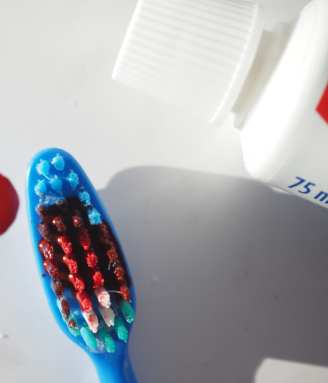Bleeding
Bleeding Disorders Treatment in Kolkata
Bleeding Disorders Symptoms
- Easy bruising without apparent cause
- Bleeding gums while brushing
- Heavy bleeding from minor cuts or dental procedures
- Frequent and unexplained nosebleeds
- Heavy and abnormal menstrual bleeding in women
- Bleeding into joints, causing pain and swelling
- Excessive bleeding after surgeries
- Postpartum hemorrhage
- Blood in urine or stool
- Petechiae (tiny red, purple, or brown spots under the skin due to bleeding.)
- Complicated umbilical cord bleeding after birth
Causes Behind Bleeding Disorders
01. Genetics
Inherited disorders are often due to mutations affecting blood clotting factors. Some bleeding disorders examples are — hemophilia and von Willebrand disease. These genetic variations can affect the production or function of crucial blood-clotting proteins.02. Other Contributing Factors
Illnesses
Some health conditions, such as vitamin K deficiency or liver disease, can damage the clotting process.Medications
There are several medicines, including anticoagulants (Heparin, Apixaban, Warfarin, Rivaroxaban, etc.) or prolonged antibiotic use, that can disturb the usual blood clotting.
Types of Bleeding Disorders
Bleeding disorders can be acquired or inherited, such as:
01. Acquired Disorders
Disseminated Intravascular Coagulation (DIC)
Causes widespread clotting and bleeding.
Liver Disease-Related Bleeding
Due to liver damage.
Vitamin K Deficiency
Affects clotting factor production.
Other Acquired Disorders
Some other acquired bleeding disorders are:
- Von Willebrand disease
- Rare blood vessel tangles or arteriovenous malformations
- Factor deficiencies (I, II, V)
02. Inherited Disorders
Von Willebrand Disease (VWD)
The most common in inherited bleeding disorder list.
Rare Clotting Factor Deficiencies
Caused by low levels of specific clotting factors.
Hemophilia A
(factor VIII deficiency)
Hemophilia B
(factor IX deficiency)
Hemophilia C
(factor XI deficiency)
Hereditary hemorrhagic telangiectasia (HHT)
Leads to abnormal blood vessels causing recurrent bleeding.

Diagnosis of Bleeding Disorders
Medical Examinations
Error-free diagnosis is essential for proper treatment and care. However, some common tests include:Complete Blood Count (CBC)
In this process, the healthcare expert evaluates overall blood health.Partial Thromboplastin Time (PTT) and Prothrombin Time (PT)
This test helps measure blood clotting time.Specialized Mixing Study
Identifies specific factor deficiencies.
Treatment of Bleeding Disorders
Any patient can manage their symptoms of bleeding disorders with proper treatment plans and medical care. The treatment involves therapies and lifestyle modifications personalized for individuals.Consulting a Doctor
Early consultation with a bleeding disorders doctor in Kolkata is essential for early diagnosis and personalized treatment planning.Medications
Antifibrinolytic Agents:
Prevent excessive bleeding during surgeries or dental work.Vitamin K Supplements:
Address deficiencies effectively.Desmopressin (DDAVP):
Enhances clotting in conditions like hemophilia and VWD.Immunosuppressive Medications:
Reduce antibodies that interfere with clotting factors in acquired conditions.Book An Appointment
Other Treatment Options
In addition, there are three other ways to treat acute bleeding disorder, such as:
- Hormone-based treatments
- Desmopressin (DDAVP)
- Monoclonal antibodies
Factor Replacement Therapy
Clotting factor concentrates:
Through this therapy, doctors replace missing clotting factors to control bleeding. They may sometimes cause antibodies that make treatment less effective.
Fresh frozen plasma:
This treatment method contains all clotting factors and helps treat conditions like liver disease-related bleeding or multiple clotting factor deficiencies.
Frequently Asked Questions
Can bleeding disorders be cured completely?
How can I prevent complications from a bleeding disorder?
How dangerous are bleeding disorders if left untreated?
- Spontaneous internal bleeding
- Joint damage
- Prolonged hemorrhaging
- Potential life-threatening complications

